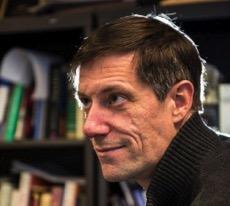
Excerpt from the New York Times
By Christopher Oldstone-Moore
John Bolton’s appointment as national security adviser is surprising in at least one respect. Mr. Bolton does not conform to President Trump’s well-attested preference for hiring people from “central casting” — that is, svelte women and square-jawed, clean-shaven men. Insiders report that when Mr. Trump first assembled his cabinet, he rejected Mr. Bolton for secretary of state because of his eccentric brush mustache.
But central casting, in the guise of Fox News, has encouraged the president to reconsider this prejudice, and having done so, he’s unlikely to regret it. Trump may think he’s mustache-averse, but what he’s likely to realize over the course of the next few months is that this particular form of facial hair — in addition to Mr. Bolton’s established track record for bellicosity — can signal a tendency toward the sort of masculine impulsiveness and aggression that is dear to Mr. Trump’s own heart.
This is not to disparage men with mustaches. They come in all varieties — and context is everything. In the realms of modern business and politics, however, facial hair has particular resonance. Beards and mustaches were effectively banished from these worlds more than a century ago. And so a man who persists in wearing a large mustache is deliberately standing out as a nonconformist. What does he reject? He rejects the longstanding shaving standard, and to some extent, its associated virtues: propriety, discipline and sociability.
The reasons that mustaches were abandoned at the beginning of the 20th century are complicated, but have to do with hygiene and corporate business culture. Germs were discovered at the end of the nineteenth century, and facial hair was subsequently condemned as unsanitary and uncivilized. Just as importantly, employers rejected facial hair as a mark of indiscipline and unprofessionalism.
This new shaving standard was a sharp departure from the previous century, when mustaches were ensigns of resolute and pugnacious manliness — so much so, that most European armies required their officers and recruits to muster with standard black mustaches. And so 20th-century men who cultivated their upper lips inevitably, if sometimes inadvertently, invoked this military past, with an additional element of nonconformity. This dynamic explains the edginess of the likes of Jimi Hendrix and Frank Zappa, the bravado of Reggie Jackson and Hulk Hogan, and the tough-guy charm of Tom Selleck and Burt Reynolds.
The 1930s and 40s were the heyday of Hollywood mustaches. Errol Flynn, Douglas Fairbanks Sr. and Jr., Adolphe Menjou and Clark Gable all graced the silver screen with rapier mustaches. Even the mild-mannered Bing Crosby was briefly persuaded to try one.
The responses from audiences were mixed: One the one hand, they made leading men appear more manly, free of conventional restraints. Their roguish, free-spirited independence offered a fantasy of liberated masculinity that appealed to men and women alike.
But the allure of the “modern caveman,” as one critic described the newly mustachioed Clark Gable, was counteracted by an underlying sense of aggressiveness that audiences, particularly women, found unattractive. One studio studied the question, presenting test audiences with scenes featuring Tyrone Power with and without a mustache. The result was that Mr. Power appeared shaved in subsequent films.
This contrast of manly types could be seen as akin to the Freudian battle between self-assertion and social control. A shaven man was perceived as a team player, disciplined and sociable. A man with facial hair, by contrast, was more impulsive and independent, playing by his own rules.
It was for this reason that voters, from the 1920s onward, regarded mustachioed politicians with suspicion. If two-time presidential runner-up Thomas Dewey, whom one admirer dubbed the “Clark Gable of candidates,” had shaved his upper lip, history might have been kinder to him. In 1944, journalist Edith Efron wrote about Dewey’s mustache in The New York Times Magazine: “It fascinates. It amuses. And it repels.” His lip adornment helped Dewey achieve a reputation for toughness, but also for arrogance. After his 1948 defeat, Dewey only half-jokingly told some visiting boy scouts, “remember, fellows, any boy can become president unless he’s got a mustache.”
In subsequent years, facial hair was a feature of the rebellious left. In our times, it is still nonconformist in business and politics, though today one is just as likely to find it on the political right, which has increasingly developed its own rebellious counterculture. For every Che Guevara, there is a Geraldo Rivera; for every hairy hipster, a hirsute hunter. This brings us back to Mr. Bolton, and to Mr. Trump himself.
Mr. Bolton’s disregard for shaving norms is a faithful reflection of his fierce independence, and his general disdain for established political ground rules and diplomatic norms. His vitriolic language and passion for conflict prevented him from winning Senate confirmation in 2005 as ambassador to the United Nations. He is the ego in conflict with the super-ego of the political establishment: Negotiations and treaties are for wimps, and so are razors.
Reporters have noted that early in his presidency, Mr. Trump felt tentative, and inclined to listen to the advice of people around him. Today he is increasingly going with his gut, and worries far less about convention or conventional looks. As he throws off the shackles on his own ego, he has turned to a similarly liberated national security adviser. Even if he still does not like Mr. Bolton’s mustache, Mr. Trump may be drawn to the pugnacious manliness it represents.
In historical context, Mr. Bolton’s mustache fits perfectly for a man who follows no rules. No wonder he has vowed never to shave it off. And no wonder that, in spite of initial misgivings, the “Disruptor-in-Chief” has turned to him. Perhaps Mr. Trump will consider growing one himself some day.
Christopher Oldstone-Moore is senior lecturer of history at Wright State University and the author of “Of Beards and Men: the Revealing History of Facial Hair.”

